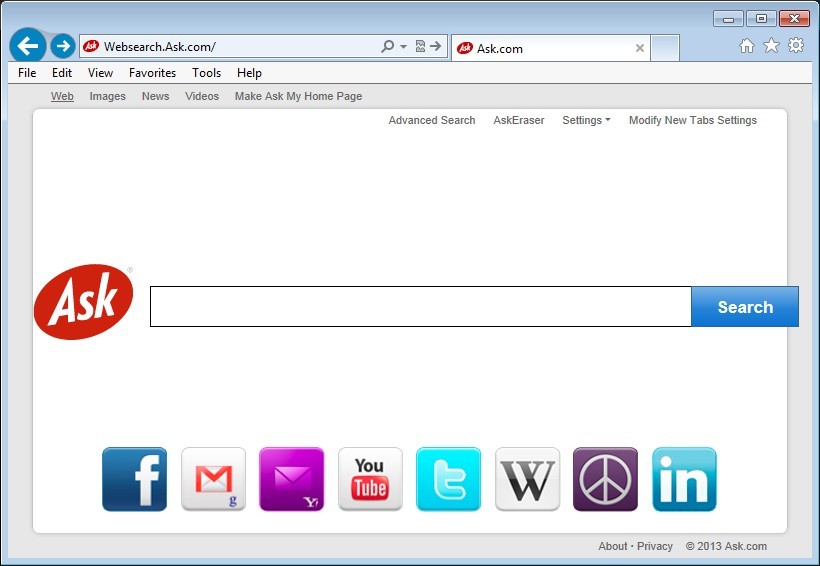
In a relatively short period of time, the Internet has had an amazing impact on almost every facet of our lives. With it, we are able access to new ideas, more information, unlimited possibilities, and a whole new world of communities. It has grown and evolved to influence how we interact, how we conduct business, how we learn, and how we proceed day to day. And as much as it has changed our lives, in the process, the Internet itself has changed too.
The Internet has revolutionized the computer and communications world like nothing before. The invention of the telegraph, telephone, radio, and computer set the stage for this unprecedented integration of capabilities. The Internet is at once a world-wide broadcasting capability, a mechanism for information dissemination, and a medium for collaboration and interaction between individuals and their computers without regard for geographic location. The Internet represents one of the most successful examples of the benefits of sustained investment and commitment to research and development of information infrastructure.
● Evolution of Internet:
It’s hard to believe there was a time when we couldn’t reach for our smartphones and get the answer to any question within a few seconds via the internet by simply typing a few keywords. The internet moved beyond being a luxury item years ago. Today, it’s a critical part of our lives and many people couldn’t live without it.
For people under the age of 20, they can’t remember a time when the internet didn’t exist. They’ll never know the frustration of going to the public library to get the “W” encyclopedia for your report on George Washington only to realize someone else is already using it (remember, you couldn’t check out encyclopedias). You waited patiently with your pocket full of dimes so you could finally copy the pages you needed and take them home with you rather than spending your entire day at the library.
How quickly things change.
WhoIsHostingThis? put together an infographic (Click here for View the Image) that traces the internet from 1969 to today and in a blog post, explained just how much things have changed:
“In just one minute on an average day, 700 videos, 28,000 Tumblr posts, 100,000 tweets and more than 34,000 Facebook “likes” hit the ‘net, and with total Internet traffic expected to quadruple by 2014, our “need for speed” is only likely to grow.”
According to the infographic, the first work on the internet began back in 1969 as part of a United States military funded research project. It wasn’t actually called “the internet” until 1984 when just 1,000 hosts at university and corporate labs successfully linked, but by 1998, 50 million people were using the internet, which was supported by 25 million servers. It took another 11 years for the internet to reach 1 billion users in 2009, but just three years later in 2012, the global internet population topped 2.1 billion people. Today, more than 2.7 billion people are using the internet around the world, which equates to 47% of the world’s population.
A few more amazing statistics from the infographic include:
● The number of websites grew from 130 in 1993 to 634 million in 2012.
● The number of Google search queries grew from 9,800 per day (3.6 million per year) in 1998 to 3 billion searches per day and 1.2 trillion searches annually in 2012.
● In 2001, 31 million emails were sent per day. Today, 297 billion emails are sent per day (204 million per second).
● In 2004, Facebook launched with just a small number of users. Today, Facebook has over 1 billion users around the world.
Of course, mobile devices have impacted many of these statistics (in 2012, 55% of Americans used their mobile devices to access the internet), and the infographic includes a timeline about the history of mobile, too. Take a look and you’ll see that the first handheld mobile phone was introduced by Motorola in 1973. Today, there are over 6.8 billion mobile subscriptions.
One thing's for certain, you can’t stop the progress of technology, which is moving faster than ever. Your content needs to be both web- and mobile-friendly.
● Personal and Corporate Website Era Begins:
On April 30, 1993 CERN's directors made a statement that was a true milestone in Internet history. On this day, they declared that WWW technology would be freely usable by anyone, with no fees being payable to CERN. This decision - much in line with the decisions of the earlier Internet pioneers to make their products freely available - was a visionary and important one.
The browser really did begin to change everything. By the end of 1994 there were a million browser copies in use - rapid growth indeed!!
In the same year Marc Andreesen founded Netscape Corporation, and the World Wide Web Consortium, which administers development of Word Wide Web standards, was formed by Tim Berners Lee.
Then we really started to see growth. Every year from 1994 to 2000, the Internet saw massive growth, the like of which had not been seen with any preceding technology. The Internet era had begun.
The first search engines began to appear in the mid 1990s, and it didn't take long for Google to come on the scene, and establish a dominant market position.
In the early days, the web was mainly used for displaying information. On line shopping, and on line purchase of goods, came a little bit later. The first large commercial site was Amazon, a company which in its initial days concentrated solely on book markets. The Amazon concept was developed in 1994, a year in which some people claim the world wide web grew by an astonishing 2300 percent! Amazon saw that on line shopping was the way of the future, and chose the book market as a field where much could be achieved.
By 1998 there were 750,000 commercial sites on the world wide web, and we were beginning to see how the Internet would bring about significant changes to existing industries. In travel for instance, we were able to compare different airlines and hotels and get the cheapest fares and accommodation - something pretty difficult for individuals to do before the world wide web. Hotels began offering last minute rates through specially constructed websites, thus furthering the power of the web as a sales medium.
● Search Engines Born:
The goal of all search engines is to find and organize distributed data found on the Internet. Before search engines were developed, the Internet was a collection of File Transfer Protocol (FTP) sites in which users would navigate to find specific shared files. As the central list of web servers joining the Internet grew, and the World Wide Web became the interface of choice for accessing the Internet, the need for finding and organizing the distributed data files on FTP web servers grew. Search engines began due to this need to more easily navigate the web servers and files on the Internet.
The first search engine was developed as a school project by Alan Emtage, a student at McGill University in Montreal. Back in 1990, Alan created Archie, an index (or archives) of computer files stored on anonymous FTP web sites in a given network of computers (“Archie” rather than “Archives” fit name length parameters – thus it became the name of the first search engine). In 1991, Mark McCahill, a student at the
University of Minnesota, effectively used a hypertext paradigm to create Gopher, which also searched for plain text references in files.
Archie and Gopher’s searchable database of websites did not have natural language keyword capabilities used in modern search engines. Rather, in 1993 the graphical Mosaic web browser improved upon Gopher’s primarily text-based interface. About the same time, Matthew Gray developed Wandex, the first search engine in the form that we know search engines today. Wandex’s technology was the first to crawl the web indexing and searching the catalog of indexed pages on the web. Another significant development in search engines came in 1994 when WebCrawler’s search engine began indexing the full text of web sites instead of just web page titles.
While both web directories and search engines gained popularity in the 1990s, search engines developed a life of their own becoming the preferred method of Internet search. For example, the major search engines found in use today originated in development between 1993 and 1998.
Alta Vista:


At the end of 1995, the Digital Equipment Corporation launched AltaVista. While it wasn't the first search engine, it improved on its predecessors, eventually becoming one of the most popular search engines of its time. AltaVista was the first to allow for natural-language search queries, meaning people could simply type what they were looking for instead of using query strings. It also indexed much more of the Web than people even knew existed at the time and was one of the first search engines to use Boolean operators.
Overtime, AltaVista changed many hands. While once providing the search results for Yahoo, it later became its competition. Eventually, one company purchased AltaVista which was then purchased by Yahoo. Some of the search technology from AltaVista ended up in the Yahoo search engine. After some time, Yahoo shut AltaVista down.
Yahoo Search:


Yahoo Search was – and still is – one of the most recognizable search engine names. In the early days, Yahoo's search was just a front end for
results that came from other web crawlers. It wasn't until 2003 that Yahoo became its own self-crawling search engine. Prior to this, Inktomi, followed by Google, powered Yahoo Search. Ironically, Google would later become their biggest competitor. In addition, Yahoo purchased several search engine companies: Inktomi, AlltheWeb, and Overture, which owned AltaVista.
One Yahoo's biggest contributions to search were their directory services, creating a large directory of authoritative sites used for their search results. Yahoo itself started as a directory of webpages without using a web crawler. The Yahoo Directory wasn't the first, but it was possibly the largest.
Yahoo Search introduced, or made popular, a number of elements that many search engines still use. It allowed for vertical search results, which is a search within a specific category. A person could run a search just for images, just for news, and various other categories. Yahoo Search is still in operation, but just like in the past, another search company powers the search results – in this case, Bing.
Lycos:


Lycos started as a research project. It launched in 1994 and became the most popular Web destination by 1999. Unlike other search engines, Lycos was a full corporate business out of the gate. It made money, and it did so quickly.
The main reason for its popularity as a search engine was its huge catalog of indexed documents. By the end of 1996, Lycos had more indexed pages than any other search engine. Lycos went through several acquisitions and sales. As a company, it owned many other companies and sites. As a search engine, it still exists today.
Google:


Before Google became a verb, it was just another search engine. Google launched near the end of the 90s as the product of a university research project. Google started as an exercise in understanding how webpages linked to each other. From this seed came the PageRank algorithm.
Page ranking is one of the most important developments in search. A page's rank is based on how many sites link back to it. The more popular or authoritative the site links, the more relevant the page. Google's web crawler also indexes a tremendous number of sites. As Google gained in popularity, other search engines began to decline. Over the years, Google has become synonymous with the practice of searching the Internet. It is the most used search engine in history.
Ask:


Ask.com started as Ask Jeeves. The search engine operated on a question-and-answer platform, where users could ask a question using natural language and the search engine would find an answer. One of Ask's main contributions to search is their own page-ranking algorithm.
Unlike Google's PageRank, Ask uses ExpertRank. ExpertRank works with subject-specific popularity. If a website on a specific subject has backlinks from other sites on the same subject, then it's more relevant. Ask eventually stopped focusing on search. It still exists as a search engine, but its core product is its searchable database of questions answered by users.
Bing:


Bing launched in 2009, but it's not exactly a newcomer. Bing existed as MSN Search and Windows Live Search going back to 1998. Third parties powered Microsoft's early searches. Around 2004, Microsoft started using its own search results. This powered the eventual change from MSN Search to Windows Live Search.
Bing launched in a search engine landscape dominated almost exclusively by Google. Microsoft used aggressive advertising and marketing to get Bing into the public consciousness, eventually taking on some of the search market share. Bing powers Yahoo search results, as well as Apple's.






Post a Comment
Write Your Precious Comments Here.!